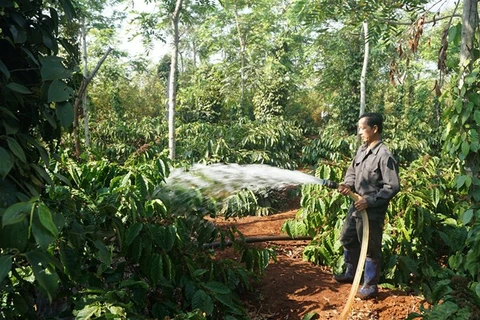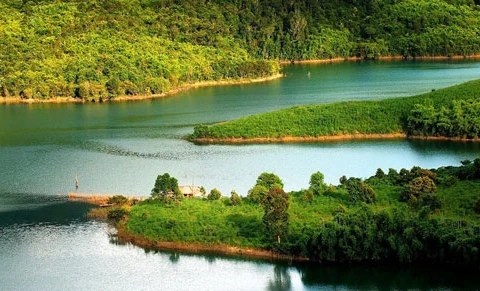Hanoi (VNA) – The pursuance of private goals in the use of Mekong River water resources could make countries miss chances to optimise their mutual benefits to ensure energy, water, food, and ecological security for common prosperity, heard a workshop in Hanoi on November 4.
Lying in the lower reaches of the river, Vietnam is likely to bear the most brunt of water resources use activities conducted by nations in the upstream, for whatever purposes, hydropower or agricultural irrigation, said Director of the People and Nature Reconciliation (PanNature) Trinh Le Nguyen.
The first hydropower dams are being built on the main stream of the Mekong River, along with the reconstruction of a number of water pumping and transferring projects to serve agriculture in Cambodia and Thailand.
All of these projects are still underway despite concerns from many countries in the region as well as the widespread warnings on their impacts.
However, it is not too late for the countries to reform policies and develop a regional blueprint with an aim of mitigating the impacts on humans and the ecological system, and meeting involved parties’ development needs, Nguyen said.
Jake Brunner from the International Union for Conservation of Nature (IUCN) held that the multinational collaboration in the Mekong River basin is crucial to bring mutual benefits and use water resources efficiently. He emphasised that attention should be paid to the development of hydropower.
Nguyen Nhan Quang, an expert in the river’s water management, said Vietnam has a developing irrigation system with around 1.9 million hectares of soil irrigated, approximately 48 percent of the total watered land in the Mekong River’s low stream.
However, the expansion of irrigated rice areas in the Mekong Delta is restricted due to saltwater intrusion and alum contaminated land, he noted.
In addition to collecting and updating more information about water transfer projects in the Mekong River, Vietnam should devise policies to protect the interests of local residents in the Mekong Delta, the expert suggested.
He called on the Mekong River Commission to grasp information and request member countries to obey regulations under the Mekong Agreement.
He also recommended shifting to crops that do not consume much water while strengthening the current Mekong cooperation institutions, including the Lower Mekong Initiative.-VNA
























